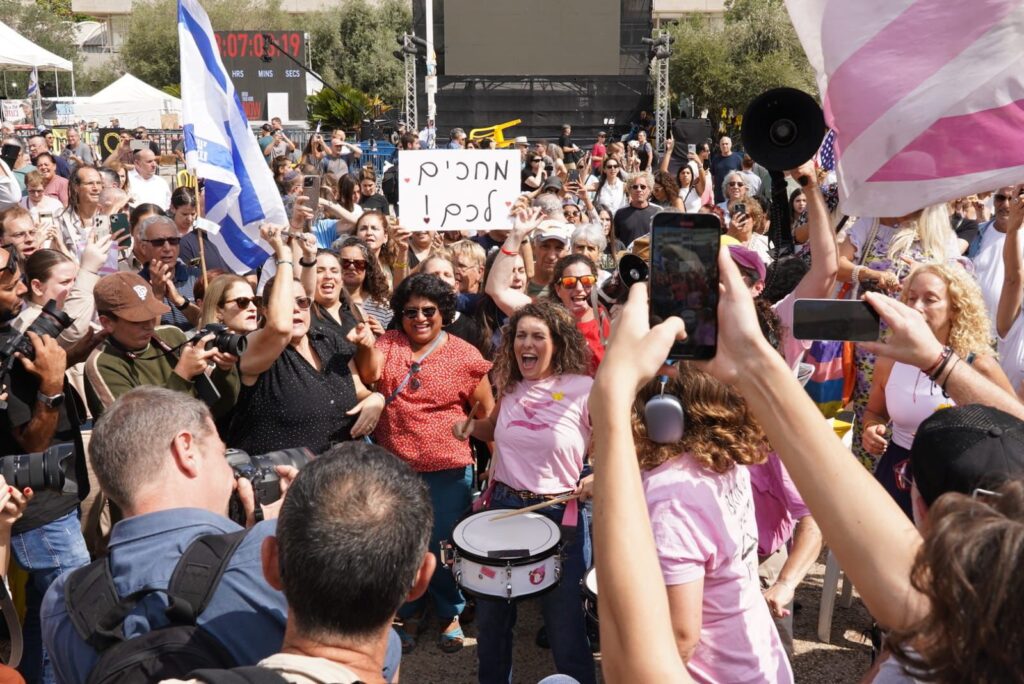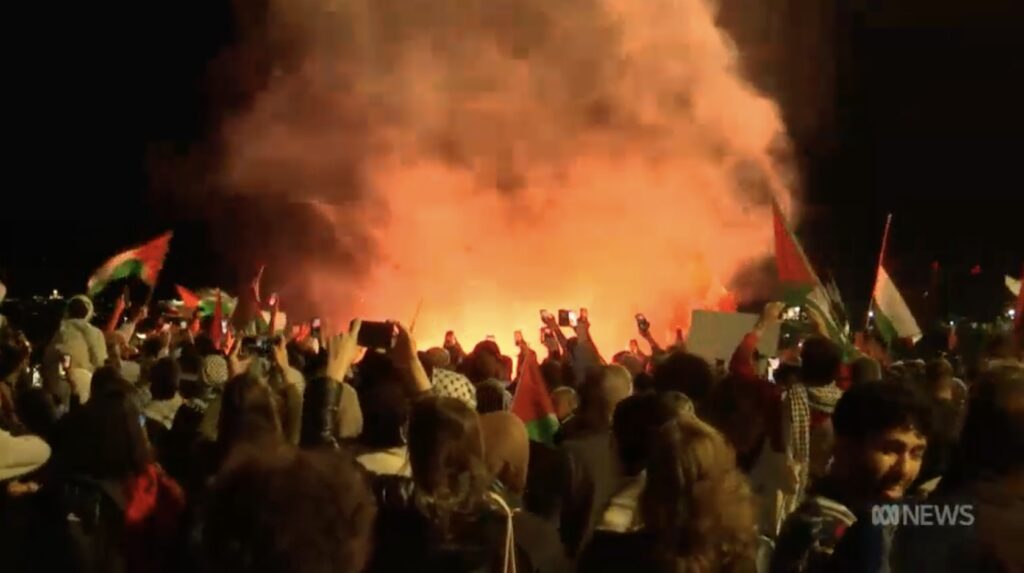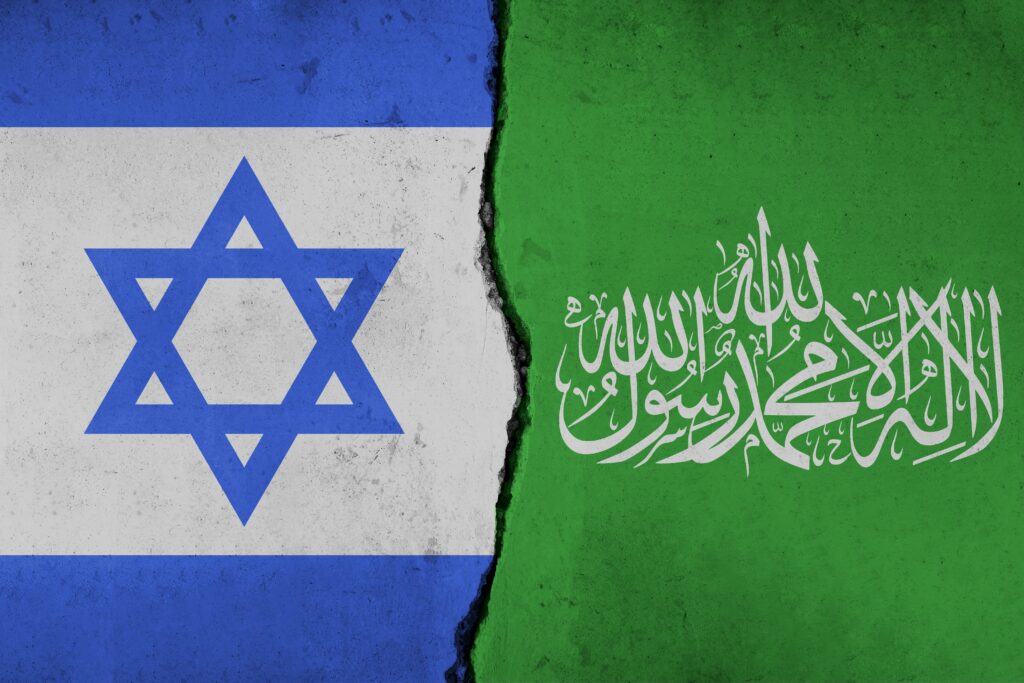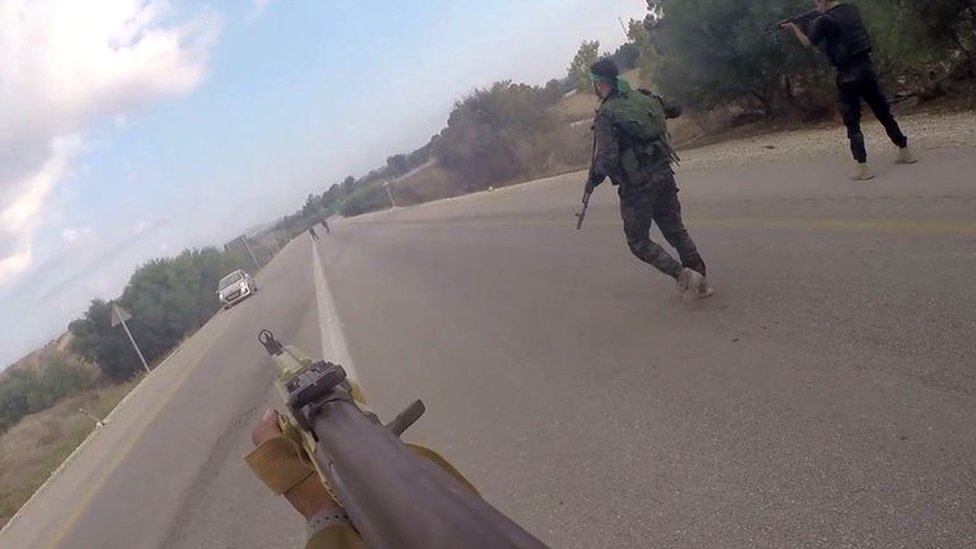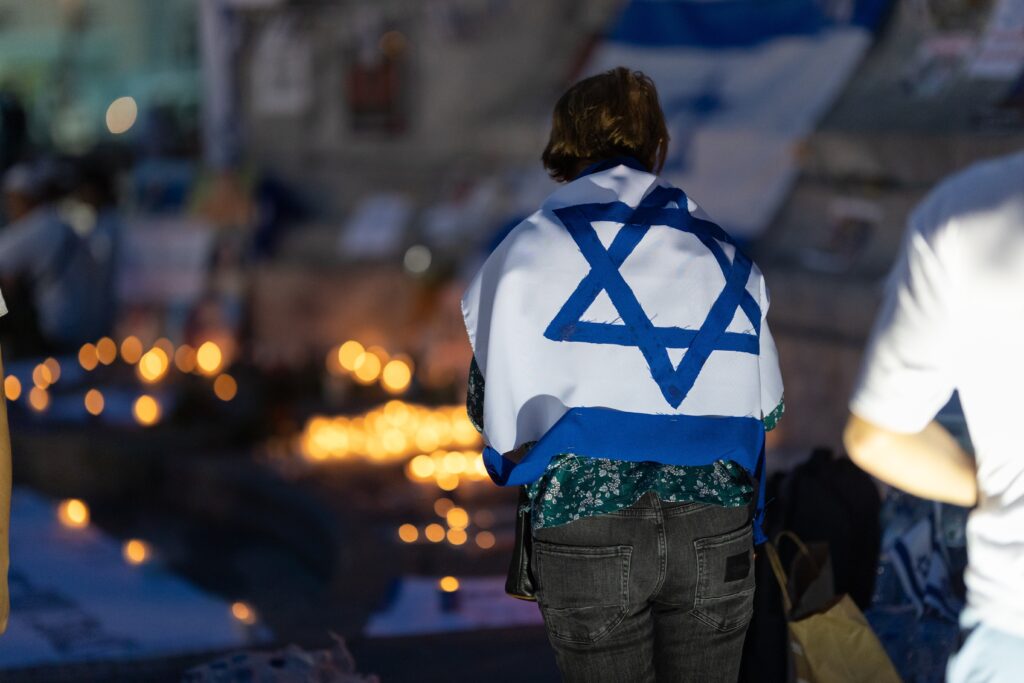FACT SHEETS
Fact Sheet: Hezbollah and Australia
July 2, 2021 | AIJAC staff
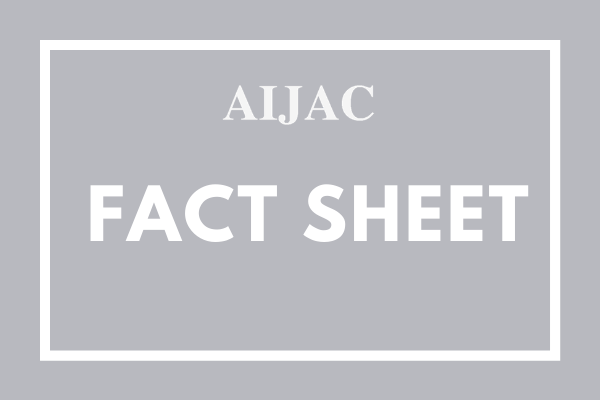
This fact sheet is current as of July 2021.
SUMMARY:
Hezbollah is a Lebanese Shi’ite Muslim political party, militia, transnational terrorist and organised crime group. It has been designated, as a terrorist organisation by the United States, the United Kingdom and Canada, as well as Israel for committing regional and global terrorist attacks.
Australia only designates Hezbollah’s “External Security Organisation (ESO)” as a terrorist organisation, despite its closest allies agreeing that Hezbollah in its entirety poses a danger.
THE FACTS
History
Hezbollah was established in the 1970s and the organisation grew following Israel’s invasion of Lebanon in 1982.
Hezbollah was one of several linked organisations across the region around that time period – including in Afghanistan, Iraq, and the Gulf States – supported by the clerical revolutionaries that would overthrow the Shah of Iran in 1979 and establish the first Islamic Republic.
During the Lebanese Civil war, Hezbollah evolved and expanded rapidly from what seemed like an umbrella group for multiple Shi’ite organisations, into a powerful, cohesive entity thanks to the leadership, support and funding received from Iran and its Islamic Revolutionary Guard Corps (IRGC).
With its innovation of suicide bombings, Hezbollah helped to drive Israel, the United States and their allies out of Lebanon. Among Hezbollah’s most heinous crimes was a 1994 attack on a Jewish centre in Argentina that killed 85 people.
Thanks to the alliance between Iran and Syria – which helped control Lebanon directly from the official end of the civil war in 1989 until 2005, when it teamed up with Hezbollah to assassinate Lebanese Prime Minister Rafiq Hariri – Hezbollah came to attract significant support in Lebanon. Hezbollah entered the Lebanese Parliament and its militia is stronger than the Lebanese national armed forces.
Today, the Lebanese government is composed of Hezbollah and its allies, and while Lebanon is not an Islamic republic, Iran’s Ayatollah Khamenei holds sway over a significant group of Lebanese politicians.
Hezbollah also operates a vast social network in Lebanon, including schools, hospitals, mosques, and even its own youth wing, the Imam al-Mahdi scouts. These social activities have garnered it substantial support and legitimacy domestically and internationally since the 1980s.
Hezbollah’s “wings”
Hezbollah operates as a civil, political and military organisation in Lebanon. There have been attempts by foreign governments to characterise Hezbollah as an entity comprised of distinct units or “wings” that each carry out functions independently of each other. This characterisation is not accurate.
Hezbollah’s overall governing authority is called the Majlis al-Shura, or Shura Council, headed by Hezbollah Secretary-General Hassan Nasrallah. The Shura Council has been described as the “supreme decision making body responsible for religious, military and strategic matters”.
Hezbollah’s Shura Council oversees a large organisation that fields candidates in Lebanese elections, sends terrorists around the world to plot and commit attacks, provides social services for Lebanese people and trains and arms a formidable militia which is widely considered more powerful than the Lebanese Armed Forces.
Attempts by foreign governments to falsely distinguish Hezbollah’s military and terrorist operations from its political and social activities have not been successful. This distinction is rejected by Hezbollah itself, and increasingly by other countries, including the US, UK, Canada, Germany, the United Arab Emirates and others.
The European Union, France and New Zealand continue to only recognise Hezbollah’s Military Wing as a terrorist entity. Meanwhile Australia delineates the organisation even further, only including Hezbollah’s External Security Organisation on its list of terrorist groups [see next section: Hezbollah and Australia].
Senior Hezbollah officials have conceded this distinction is erroneous.
In 2013, Mohammad Raad, head of Hezbollah’s parliamentary delegation, declared that “The Hezbollah military wing is a lie invented by the Europeans because they feel a need to communicate with us and they want to make a delusional separation between the so-called military and political wings.”
In 2012, Hezbollah leader Naim Qassem said: “We don’t have a military wing and a political one; we don’t have Hezbollah on one hand and the resistance party on the other…Every element of Hezbollah, from commanders to members as well as our various capabilities, is in the service of the resistance, and we have nothing but the resistance as a priority.”
Australia and Hezbollah
Australia designates an entity it calls, Hezbollah’s External Security Organisation (ESO). This is a smaller entity than even the “Military Wing” that other countries, such as France and New Zealand, consider to be a terrorist actor.
At the moment, under Australia’s Criminal Code, it is illegal to support the Hezbollah External Security Organisation (ESO). According to the Australian Government, the ESO is a discrete wing of Hezbollah that sits within its military apparatus and organises terrorist attacks outside of Lebanon. The rest of Hezbollah can be legally supported by Australians, including sending money, or recruiting people to join the organisation. This stands in stark contrast to the approach to Sunni Muslim terrorist groups, like ISIS and Al Qaeda, which are rightly outlawed in Australia.
In 2018, Australia’s Parliamentary Joint Standing Committee on Intelligence and Security (PJCIS) reviewed Australia’s listing of Hezbollah ESO as a terrorist organisation and recommended that Australia upgrade its ban to the military wing of Hezbollah, which would at least bring Australia in line with New Zealand.
In February 2020, Australia’s then-Home Affairs Minister Peter Dutton responded to calls for Australia to list the entirety of Hezbollah on its terrorist list, saying that “there are other equities that we need to look at in the consideration of many of these matters”. Dutton said he would take advice from security agencies as to Australia’s best interests and would review Australia’s approach. He ultimately did not act on the committee’s recommendation.
In June 2021, the PJCIS again reviewed the terrorist listing of Hezbollah’s ESO. This time, it recommended that the Minister for Home Affairs Karen Andrews expand the listing further to encompass Hezbollah in its entirety. AIJAC was among the interested parties to provide evidence urging the PJCIS to make this recommendation.
In making the recommendation, PJCIS chair Senator James Paterson said: “The evidence provided to the committee was overwhelmingly supportive of proscribing Hezbollah in its entirety as a terrorist organisation, rather than only the ESO. On the strength of this evidence, the committee thinks it’s time for the government to consider expanding the listing as all of our Five Eyes partners have done.”
The committee’s deputy chair Mr Anthony Byrne MP added, “It’s clear that the distinction drawn between the ESO and the rest of Hezbollah is arbitrary, and in the committee’s judgement, not something Australia should persist with.”
As revealed by open-source intelligence, for more than 20 years, Hezbollah has recruited Australian citizens and had a presence in Australia. In the past three years alone, this includes the following.
May 2021 – At pro-Palestinian rallies in Sydney during and following the 11-day conflict between Israel and Hamas in Gaza, demonstrators waved the yellow and green flag of Hezbollah. This public display of support for a group that is responsible for so many deaths and terrorist attacks was alarming to onlookers. NSW Police, meanwhile, had no capacity to respond because flying a Hezbollah flag in Australia is legal.
September 2020 – A Bulgarian court sentenced to life in prison a dual Australian-Lebanese citizen Meliad Farah for complicity in an act of terrorism. The court confirmed that Farah was linked to Hezbollah and had assisted in the bombing of a busload of Israeli tourists in Bulgaria in 2012, which killed six people. Disturbingly, Farah remains unaccounted for, so could still be active on behalf of Hezbollah.
February 2020 – A NSW court convicted Hezbollah supporter Ali Haidar of violence criminal offences. However, even though NSW Police were aware of Haidar’s supoprt for Hezbollah, the court could not list him as a “high-risk terrorist offender” due to Australia’s terrorist listing only including Hezbollah’s ESO.
Justice David Davies told the court: “The Commonwealth accepts that Hezbollah maintains a militia and that it had deployed forces in Syria to assist the Syrian regime … Notwithstanding, the Commonwealth did not list Hezbollah as a terrorist organisation.
“In my opinion, it would introduce confusion into the area of anti-terrorism if the court were to reach a different conclusion. It follows also that Amal, which is at one remove, is also not an organisation that supports terrorist acts or violent extremism.”
Following media reporting on this case, then-Minister for Home Affairs Dutton told journalists he would receive “some briefings” on Hezbollah, noting that a decision to extend the proscription of Hezbollah was based on “facts that aren’t publicly available”.
September 2019 – The Australian Charities and Not-for-profit Commission (ACNC) revoked the charity status of Al-Mabarrat Benevolent Society for undisclosed reasons. Media reported that the organisation had ties to Hezbollah, although it is not known whether these ties influenced the ACNC’s decision.
July 2019 – A fact sheet produced by the US Department of Homeland Security outlined some of Hezbollah’s recruitment methods. As well as the predictable recruitment tools of social media, coercion and cash incentives, Hezbollah also targets those with familial ties to its home-base, Lebanon, including, according to the US Department of Homeland Security, dual Australian-Lebanese citizens. According to the 2016 Australian Census, there were 230, 869 Australians with Lebanese heritage.
April 2019 – The US Department of Treasury designated Lebanese national Kassem Chams and the Chams Money Laundering Organization as Specially Designated Narcotics Traffickers noting both Chams and the organisation were “an affiliated network” of Hezbollah. Chams moved money for Hezbollah through a range of countries, Australia included, according to the US Treasury. In announcing this designation, Sigal Mandelker from the US Treasury said the designation allowed the US to target Hezbollah’s criminal network, which operates as a “logistic, procurement and financing arm” for the rest of the organisation.
Hezbollah and Israel
In Lebanon, Hezbollah has developed a massive stockpile of rockets and missiles, supported and provided by Iran, in order to threaten Israel. Hezbollah’s stockpile of increasingly sophisticated missiles is of major concern to Israel’s defence establishment.
The United Nations Interim Force in Lebanon (UNIFIL) has been stationed on the border between Lebanon and Israel since March 1978, and its mandate has been renewed in multiple United Nations Security Council resolutions since then.
Following the 2006 war between Hezbollah and Israel, which Hezbollah started by kidnapping and killing Israeli soldiers along the border, the United Nations passed Resolution 1701 to enforce a ceasefire. The resolution envisioned the “establishment between the Blue Line and the Litani river of an area free of any armed personnel, assets and weapons other than those of the Government of Lebanon and of UNIFIL” and “full implementation of the relevant provisions of the Taif Accords, and of resolutions 1559 (2004) and 1680 (2006), that require the disarmament of all armed groups in Lebanon, so that…there will be no weapons or authority in Lebanon other than that of the Lebanese State.”
UNIFIL was meant to work with the Lebanese Armed Forces (LAF) to enforce these provisions but has failed to fulfill this mandate.
Hezbollah not only retains a parallel military far more powerful than the Lebanese military, but now has a missile arsenal orders of magnitude larger and more deadly than it did in 2006, when UNIFIL was meant to help the LAF enforce disarmament.
Furthermore, Hezbollah controls the border and even conducts tours of the areas it was supposed to vacate, fully armed, accompanied or watched by the LAF and UNIFIL. There is evidence that Hezbollah often attacks and harrasses UNIFIL patrols.
Going even further, then-Israeli Defence Minister Avigdor Lieberman asserted in October 2017, “The Lebanese army has turned into an integral part of Hezbollah’s command structure. The Lebanese army has lost its independence and become an inseparable part of the Hezbollah apparatus.”
Hezbollah also spent years digging multiple tunnels into Israel right under UNIFIL’s feet, directly from its designated area of control. In December 2018, Israel launched Operation Northern Shield to find and destroy all the tunnels.
Hezbollah’s global activities
Hezbollah has engaged in a series of devastating terrorist attacks across the world since the 1980s, and while it seems to have abandoned suicide bombing, it continues to plan large attacks worldwide.
Hezbollah is also considered among the most, if not the most, sophisticated transnational crime syndicates in the world, engaging in every possible type and level of criminal activity to raise funds and network with other cartels and narco-terrorists.
The phenomenon became so alarming that the US Drug Enforcement Administration launched ‘Operation Cassandra’ in 2008 to track and combat its criminal activities, and in 2018 the US Justice Department established the Hezbollah Finance and Narcoterrorism Team.
Hezbollah expert Dr Emanuele Ottolenghi has suggested that as well as working to deter Hezbollah from committing terrorist acts, countries around the world – including in South America, Europe and Asia – need to recognise Hezbollah as a significant transnational criminal actor, as the United States has done.
Another global expert on Hezbollah, Dr Matthew Levitt has created a global mapping tool that tracks Hezbollah’s criminal and terrorist activity across the world.

